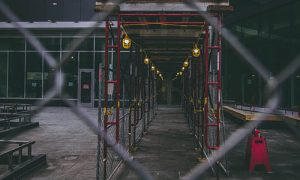So Capital Allowances have changed. Three significant changes to Capital Allowances have come into effect. Firstly, the first-year allowance for electric charge points due to expire in 2019 has been extended to 2023. Secondly, the Special Rate relief for plant and machinery is reduced from 8% to 6% from April 2019. And finally, the new Building & Structures Allowance provides tax relief on qualifying construction costs for works that started on or after 29 October 2018.

Extension to First Year Allowance for electric charging points
The government provides a 100% first year allowance for expenditure incurred on electric vehicle charge point equipment. This was due to expire in 2019. This First year Allowance has been extended for a further four years to 2023:
- Extension up to 31 March 2023 for corporation tax purposes
- Extension up to 5 April 2023 for income tax purposes.
Expenditure incurred on or after 1 April 2019 until 31 March 2023 for corporation tax purposes and on or after 6 April 2019 until 5 April 2023 for income tax purposes will now be eligible for this tax relief.
Special Rate Writing Down Allowance reduced from 8% to 6%
The full cost of business assets can normally be deducted from profits before tax via the Annual Invest Allowance (AIA). Where this does not apply, either because you’ve already claimed the full value of AIA or because the expenditure doesn’t qualify then the Writing Down Allowance can be used instead where a percentage of the value of assets can be deduced from profits each year. The Main Rate of 18% applies to most plant and machinery. There’s also a Single Asset rate of 18% to 8% for assets with a short life or that are used outside the business by sole traders or partners depending on the item.
The Special Rate applies to plant and machinery costs where:
- parts of a building considered integral such as lifts, heating, air cooling, water and electrical systems
- items with a long life of at least 25 years that were bought in a single accounting year total over £100,000
- thermal insulation of buildings
- cars with CO2 emissions of more than 130g/km
The Special Rate has been reduced from 8% to 6%. This is effective from:
- 1 April 2019 for businesses within the charge to Corporation Tax
- 6 April 2019 for businesses within the charge to Income Tax
For businesses with accounting periods that span April 2019, a hybrid rate will apply to the Writing Down Allowance for the year.
This Special Rate change means that whilst businesses continue to receive full tax relief to reflect the depreciation of plant and machinery assets, this will now happen over an extended timeframe.
The law remains unchanged for ring fence trades, which will retain the 10% Special Rate writing down allowance.
New Structures & Buildings Allowance (SBA)
Since the Industrial Buildings Allowance (IBA) was withdrawn some ten years ago, there hasn’t been any tax relief available for expenditure on buildings. Now the Government has introduced a new capital allowance, the Structures and Buildings Allowance, designed to encourage business investment in buildings and other structures, and to bolster the competitiveness of British businesses. It’s a significant change which is viewed by some to be a direct replacement of the Industrial Buildings Allowances that were in place from 1945 until April 2011. The SBA applies to construction works that start from 29 October 2018.
What is the SBA exactly?
The Structures and Buildings Allowance is available for new construction expenditure on non-residential buildings and structures. It will be given over 50 years, at a rate of 2% per annum.
The allowance relates to qualifying expenditure for building of structures which broadly includes:
- fees for design
- preparing the site for construction
- construction works
- renovation, repair and conversion costs
- fitting out works
The allowance applies where the building will be used for qualifying activities which are broadly defined as:
- any trades, professions and vocations
- a UK or overseas property business (except for residential and furnished holiday lettings)
- managing the investments of a company
- mining, quarrying, fishing and other land-based trades such as running railways and toll roads
The SBA extends to the purchase of new properties from developers that meet its criteria, with any costs related to the purchase of land being excluded.
It also extends to qualifying construction costs when renovating a building or structure.
Special provisions are in place for property leases which allow both the landlord and tenants to make a claim in respect of their qualifying expenditure.
What’s not covered by the SBA
The SBA does not cover costs certain construction costs.
This includes works considered to be plant and machinery termed ‘integral fixtures and fittings’, in other words, M&E building services such as heating, aircon and electrical systems. Businesses will still be able to apply for the existing Plant & Machinery Allowance (PMA).
Also excluded are costs for any residential works or structures within residential grounds; land; planning permission costs; financing costs, legal expenses or stamp duty; costs for landscaping or situations where a grant had been received.
When does the SBA come into effect?
The SBA applies to construction contracts commencing on or after 29 October 2018. But the rules are complex and include anti-avoidance measures to stop businesses nudging existing construction projects within the criteria for the allowance.
In contrast to rules for the Plant and Machinery Allowance, the building or structure must be in use or used within the last two years, for the organisation to be entitled to claim the allowance each year for the 50-year duration of this tax relief.
Here is a link to the for more info: https://www.gov.uk/government/publications/capital-allowances-structures-and-buildings-allowance
For further information about on changes to capital allowances and other tax reliefs please contact Amy Armitage at HB Accountants on 01992 444466 or email amy@hbaccountants.co.uk


Pingback: Year End Tax Tips for Businesses 2019/2020 - HB Accountants